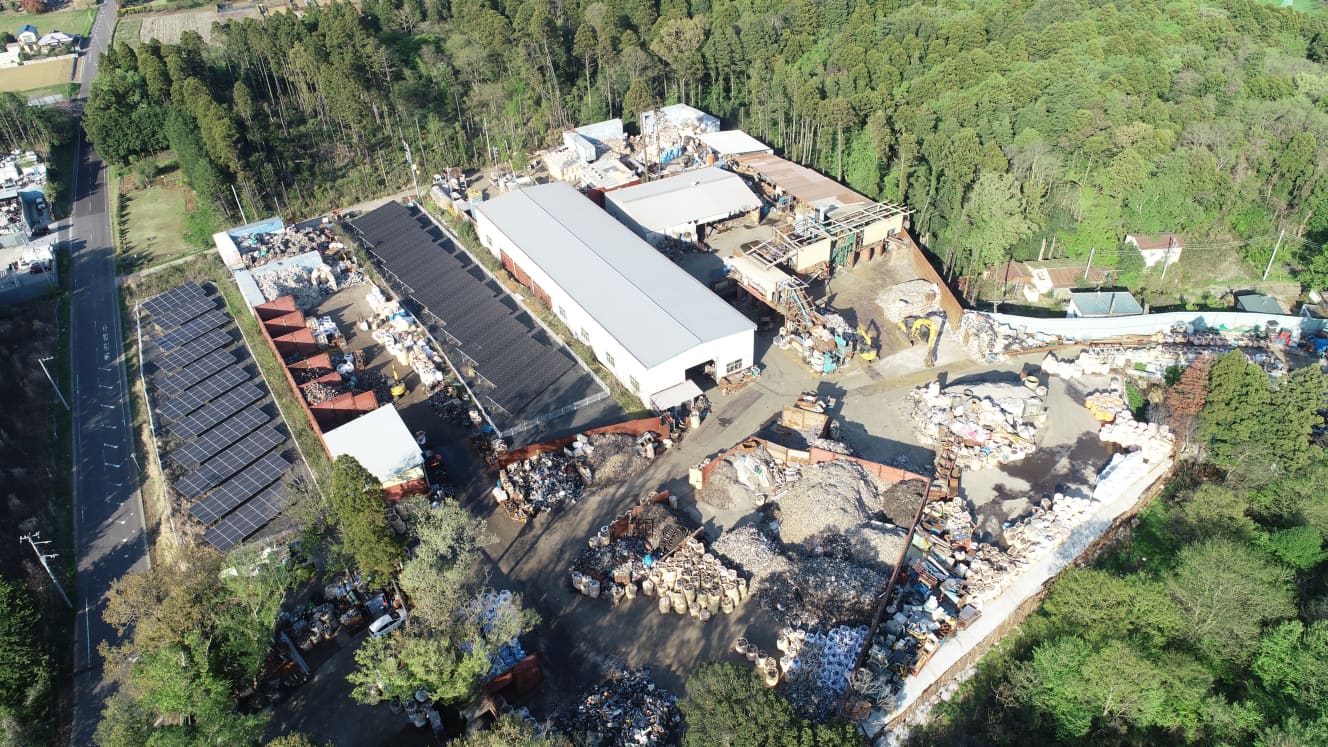A series of troubles but “no language and no apology”…Chinese “metal scrap facility” ignores the law, “full picture”.
In a corner of Chiba City, where farmland and houses spread out, there is an open-air demolition and storage facility called a “yard” where scrap metal is piled high. Inside, surrounded by a steel fence, heavy machinery was roaring as it crushed and processed the steel.
The “Gahn.” that occurs during the demolition work, “Gahn! Gahn! It’s loud every day,” he said. A few years ago, a scrap fire broke out in the middle of the night and burned for two days, causing such a commotion that a helicopter had to be sent in to extinguish the fire in the air.
It is said that the lithium-ion batteries may have ignited the fire, but at that time I could not sleep at night because I was worried that the flames might burst into flames here at any moment. The yard is run by a Chinese company and they do not speak our language. No matter how much trouble we caused, they never apologized to our neighbors. The neighborhood used to be a quiet place, but that has all changed because of the yards.
The number of yards has increased rapidly over the past few years, and more than 800 locations have been confirmed nationwide. Of these, 40% are concentrated in Chiba Prefecture. According to a prefectural survey, about one-third of them have become a social problem due to noise, oil pollution, fires, and other problems. Many of them are Chinese-affiliated companies.
The reason there are so many yards in Chiba is because land in the suburbs is inexpensive and because of its location, as scrap metal generated from demolition work in the Tokyo metropolitan area can be exported to China from the Port of Chiba. Since the Chinese government banned the import of scrap metal in 1919, it is no longer possible to bring it into the country without processing it into raw materials. As a result, more and more Chinese companies are setting up metal processing yards in Japan,” said a reporter from the economics department of a national newspaper.
Only 3 out of 89 yards have obtained permits.

Noise and fires are not the only problems. Many companies ignore Japanese laws and regulations and continue to operate.
In November 2009, Chiba City enacted the “Chiba City Ordinance on Open-Air Storage of Recyclable Resources” (Yard Ordinance), which stipulates that new yards of 100 m2 or more must be approved by the mayor, must not be located within 100 m of residences, and must not exceed 5 m in height for scrap metal. The new law was adopted. However, the effect is said to be limited.
A Chiba City official explains the current situation.
When we give administrative guidance to operators, noise, vibration, and odors temporarily disappear, but they often reappear soon after. In addition, there are many cases where yards are built in urbanization control zones, where building construction is not allowed without a permit.
Of the 89 yards located in the city’s urbanization control area, only 3 have obtained permits. We have repeatedly instructed these unlicensed yards to take corrective measures, but we have issued supervisory actions against malicious operators who do not make improvements, and if they still do not demolish the structures, we are considering criminal charges.
The yard mentioned at the beginning of this article was also instructed 14 times over the last five years, including on-site inspections and the sending of four corrective action letters, but it did not improve. On March 29 of this year, the city issued a supervisory action based on the City Planning Law.
With the demand for recycled resources rapidly increasing in Asian countries, the number of yards is expected to increase throughout Japan in the future. Currently, only a few municipalities other than Chiba City have yard ordinances, including Sodegaura City, Sakai Town in Ibaraki Prefecture, and Ayase City in Kanagawa Prefecture. Chiba Prefecture is also in the process of enacting an ordinance, but it has not kept pace with the increase in yards. Urgent measures are needed.






Reporting, writing, and photography: Masayoshi Katayama
Journalist
